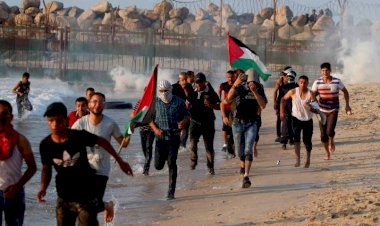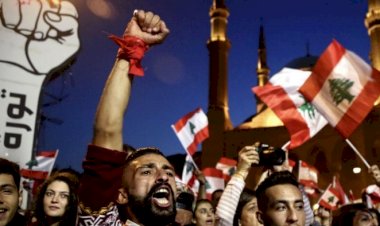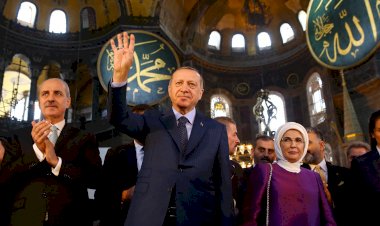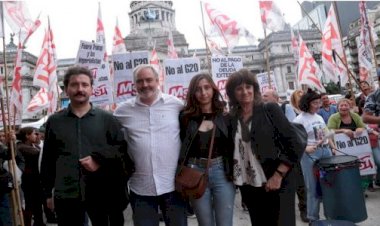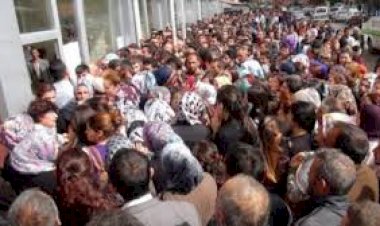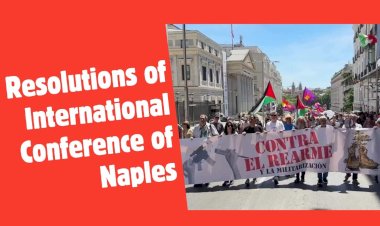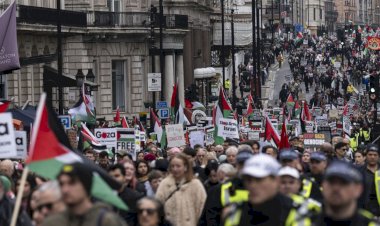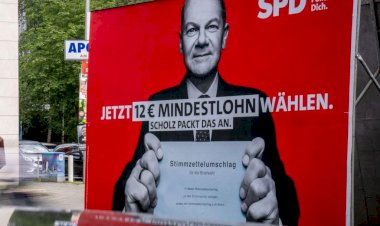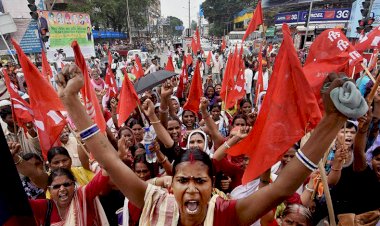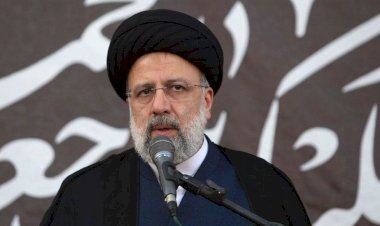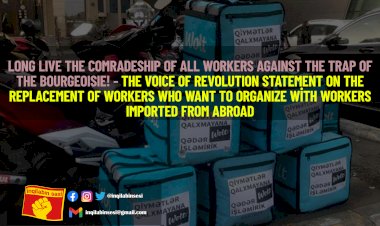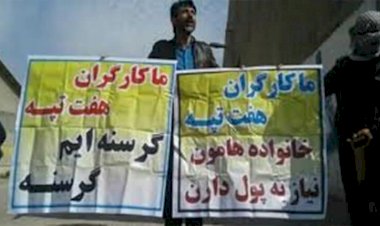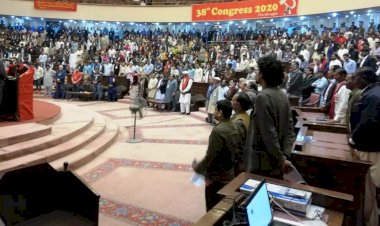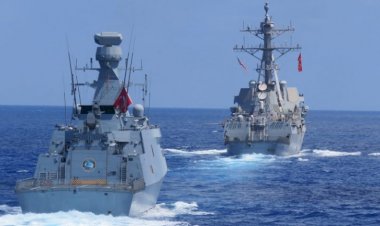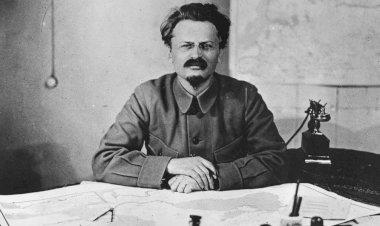Interview | Uniting with the fighters across the world, building a revolutionary front against capitalism, defending democratic rights, and strengthening solidarity and the struggle for freedom
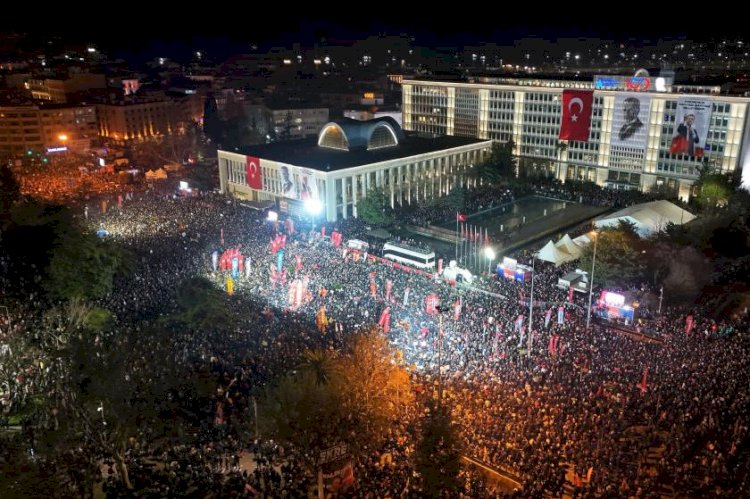
1-It is clear that in the last months, there has been a leap in the repression and political persecution of Recep Erdogan's government. Could you summarize today the measures he has taken and the status of detainees, political prisoners, and those affected by legal cases of political persecution?
The massive wave of protests that broke out on March 19, led by university students, was sparked by Erdoğan’s operation to eliminate his most powerful rival and the entire leadership team with him, based on a fabricated legal decision. While the operation targeted Ekrem İmamoğlu, the mayor of Istanbul Metropolitan Municipality, the real issue was the de facto abolition of the democratic right to vote and be elected in the country. The students’ action quickly escalated into a mass struggle, in a way that no one had anticipated.
Authoritarianism in Turkey has been intensifying for at least the past 15 years. As a result, the ruling AKP now has near-absolute control over the state apparatus. Strikes are banned, unionized workers are fired; student festivals are prohibited at universities; the opposition press, artists, academia, public spaces, and especially socialists, Kurds, and all dissenting voices are under constant repression. Erdoğan keeps thousands of opponents behind bars. Yet these recent protests have opened the door to a new period—one where naked violence alone is no longer sufficient to suppress dissent.
For an entire week, daily protests continued en masse so did the police attacks. The regime ordered house raids every single day in early mornings to jail the young protesters. The goal was to oppress the youth and bring an end to the demonstrations. But it didn’t work. Police violence on the streets was also severe at times, but again, ineffective. In the end, it was the regime that had to step back from open violence.
Since the mass protests began on March 19, an intense crackdown has been underway. That much is true. Thousands have been detained so far. Nearly 350 people have been imprisoned. Posting on social media, being a popular figure, a protesting youth, or an artist who openly supports the protests—any of these is enough for police to raid your home at dawn, hold you in custody for days, and send you to prison. There have been serious incidents of violence on the streets. Women in custody have reported cases of sexual and verbal harassment. The conditions of those arrested are dire. Turkey’s prisons are holding nearly twice their official capacity. There are no beds; food is insufficient. The Silivri prison in Istanbul has become a symbol of the regime, almost like a concentration camp. In everyday language, countless jokes and phrases have emerged about Silivri in the past twenty years.
Yes, there is repression—but it would be wrong to understand this as one-sided. There is repression, but also resistance.
While the pace of the protests has slowed, the campaign to free the detainees has been highly effective. Within a few weeks, the number of those imprisoned dropped to around 80. Yet the repression continues. Most recently, two SEP members were arrested and sent to the infamous Silivri prison for writing “dictator Erdoğan” on a wall.
2- How is the great movement of struggle against the Erdogan government that we saw underway last month continuing? What are the main sectors driving the struggle?
New developments unfold every day. For example, as of April 14, high school students have joined this massive wave of protests. Under an education system governed by authoritarian rule, where religious sects and fascist organizations are integrated into national education through state protocols, and where schooling has become utterly meaningless, high school students have become intensely politicized. Youth poverty has deepened to an extreme degree. Today, young people are living under far worse conditions than their parents did. Concepts like retirement, decent working conditions, and union rights are no longer realistic prospects for this generation.
Although high school students were rarely seen in last month’s protests, they were already carrying this burden. What triggered their mobilization, however, was something else. Around 20,000 teachers from leading high schools were either reassigned or replaced—part of an attempt by the AKP to fill teaching positions with its loyal cadres or to exile opposition-minded teachers. As university students began to slowly retreat from the streets, this development pulled high school students into the protests. A new dynamic has emerged. While university and school administrations continue to threaten students, heightened repression now only fuels more anger.
For Erdoğan, this represents a full-blown political crisis. All opinion polls now show that he has completely lost public support. But he will stop at nothing to cling to power. At this stage, it is clear that protest alone is not enough. Trade unions, for example, are playing no role. Broad sectors of society are not engaged in any organized plan of resistance. Millions are unorganized and lack direction. The main driving force behind the street mobilizations is the student movement.
At the same time, the Kemalist CHP is organizing large rallies in various cities and continuing its campaign efforts.
3- The main measure that gave rise to the popular reaction was the imprisonment of the main bourgeois opposition candidate. What impact has that had on the characteristics of the movement?
The impact of the protests is undeniable. People saw this move as the end of electoral politics in Turkey, and they were right. The government was not only targeting İmamoğlu but also preparing to appoint a trustee to the main opposition party itself. This was about far more than İmamoğlu, and the masses understood it that way. People saw this resistance as the final point of grasp before falling off the cliff. In the face of repression and arrests, the student movement showed great courage and forced the CHP to adopt a more defiant stance. The same CHP had stood idly by for months, despite signs that this attack was coming. Yet, for one full week, hundreds of thousands gathered every evening in front of the Istanbul municipal building.
The youth were highly radicalized and willing to confront the police. One of the most iconic slogans of this period was: “We didn’t come for a concert, we came to protest.” Following the clashes, socialists were among the first to face targeted repression.
However, we cannot say that ideological radicalism was matched by tactical or practical radicalism. Aside from the revolutionary socialist groups, the broader student movement leaned ideologically toward Kemalism. Parties such as TKP and TİP represented what could be called left-Kemalist currents that assign a progressive role to Kemalism. On the other hand, some secular nationalist youth groups—sometimes bordering on fascism—also played a visible role in the protests.
There was occasional rivalry, even tension, between these nationalist groups and socialist ones regarding the leadership of the movement. From what I’ve observed, socialists often outpaced these groups in leading the student movement, thanks to their superior organizing skills and protest strategies.
4- What are the main demands of the labor movement in Turkey at the moment?
Young people in the streets are also facing major class-based problems. Even right-wing commentators agree that, beyond the struggle for democratic rights and freedoms, the youth are reacting with a strong class instinct. Students are forced to study while working under conditions of poverty. Anxiety about the future is at an all-time high—finding a secure and decent job is extremely difficult. To access such opportunities, one must be connected to the AKP’s patronage networks. Cronyism is rampant. As a result, the children of right-wing, conservative, and pro-government nationalist families are shifting sharply into anti-AKP positions.
Unfortunately, the organized working-class movement has remained largely absent from these protests. The CHP lacks the capacity to feed the democratic struggle with broader social demands. In this regard, they are far behind even the reformist example of Bernie Sanders in the United States. Yet the concerns of the working class are not fundamentally different. Low wages are a major issue. We are experiencing rapid impoverishment. Working conditions are harsh—long hours, insecure jobs, and a precarious labor environment. Young workers face mass unemployment.
To bridge the gap between the student movement and young workers—and to mobilize the more conservative or currently politically disengaged sections of the working class against the Erdoğan regime—issues such as wages, the healthcare system, inflation, and unemployment must be integrated into the mass struggle. Without this, it may not be possible to overcome the limitations of the current protest base.
5- What is the central policy of the SEP to face this stage of struggle against the Erdogan regime?
To ensure that university boycott committees or student representative bodies evolve into permanent structures of struggle, they must be supported and advanced through campaigns. The goal is to establish an active and dynamic structure through non-bureaucratic means—one that leaves behind a lasting, grassroots organization of resistance. This would enable the mass mobilization of people toward an independent axis of struggle that goes beyond the limits of the CHP. At the same time, it is crucial to ensure the continuity of the movement and to strengthen it with transitional demands that can push it forward.
It is also essential to apply grassroots pressure on the unions, forcing them to take concrete steps in the struggle, and to organize a base-level movement that can bring about the political activation of the working class. And of course, we must demonstrate the organizational capacity to unite this generation, of which high school and university students are the most dynamic component, with revolutionary struggle.
From day one, SEP and its university youth organization, MFT, have devoted significant efforts at each of these stages and have sought to make an impact. I can confidently say that we have achieved a meaningful level of influence within the youth movement.
6- What role do you see for international workers' solidarity in the face of this repressive situation?
This wave of repression in Turkey has come in the wake of Trump’s return to the White House. The dynamics of imperialist tension and rivalry have created a highly fertile ground for far-right authoritarian regimes. In 2019, when figures like Bolsonaro and Trump were in power, we witnessed powerful waves of resistance and progressive mass struggles across the globe—from the Middle East to Europe, Latin America to Africa. However, those movements failed to take a revolutionary and class-based leap forward. With the pandemic, global contradictions deepened, and we have now entered a phase where the possibility of a third world war is openly discussed.
Milei came to power. Trump returned. In Ukraine, war continues, while in the Middle East, ethnic cleansing in Palestine and imperialist interventions in Syria have brought figures like Golani to power. We are in a period in which Israel has become drastically more powerful. Within this global climate of authoritarianism, the current wave of repression is deeply tied to these shifting balances.
Yet political balances are not shaped solely by ruling elites. The working classes and rebellious peoples, through their strength or weakness, are always active or passive agents in shaping these balances. The struggles of the working class against these regimes of massacre, repression, war, and hunger are the only real guarantee for protecting democratic rights and freedoms.
For instance, the U.S. president may say he "likes Erdoğan very much," but when hundreds of thousands rise up against Trump and capitalist oligarchs like Elon Musk, the balance of forces will shift accordingly. We believe a strong reaction from the left is inevitable under the current conditions of global authoritarianism and economic crisis. Such a shift in momentum would alter all global dynamics.
To prevent this new wave from being absorbed or blunted by reformist politicians like Bernie Sanders and Jean-Luc Mélenchon, or by bourgeois currents like Kemalism and Peronism, revolutionary socialists must gain strength and take the lead in shaping these developments. Ultimately, the transformative force lies in a political general strike and united internationalist action.
To make that possible, we believe that revolutionary forces must build strong global unity.
7- How is the SEP preparing for the International Forum against Repression and Political Persecution? What political perspective do you see for it?
In our region—across the Middle East, Africa, and Asia—hundreds of millions live under wretched regimes that feed off one another.. At this point in history, the most decisive factor will be the coming together of the vanguard workers and youth. That is why we must unite with our comrades, workers, the oppressed, freedom fighters, and activists both in our region and around the world, and build every possible form of collaboration that will strengthen international unity, joint action, and our collective capacity to mobilize.
We are preparing for the upcoming Forum alongside comrades from Greece, Iran, and Azerbaijan, with our Cypriot friends, and with representatives of the Alevi people, who are currently facing ethnic cleansing, especially in Syria, but also across the region. In this harsh geography of class struggle, we know there can be no future without such unity.
We see the upcoming Forum as an important step toward uniting with the fighters across the world, building a revolutionary front against capitalism, defending democratic rights, and strengthening solidarity and the struggle for freedom.
Related:
Call to organize an International Forum against Political Persecution and Repression
Dozens of organizations joins the International Forum Against Repression and Political Persecution



